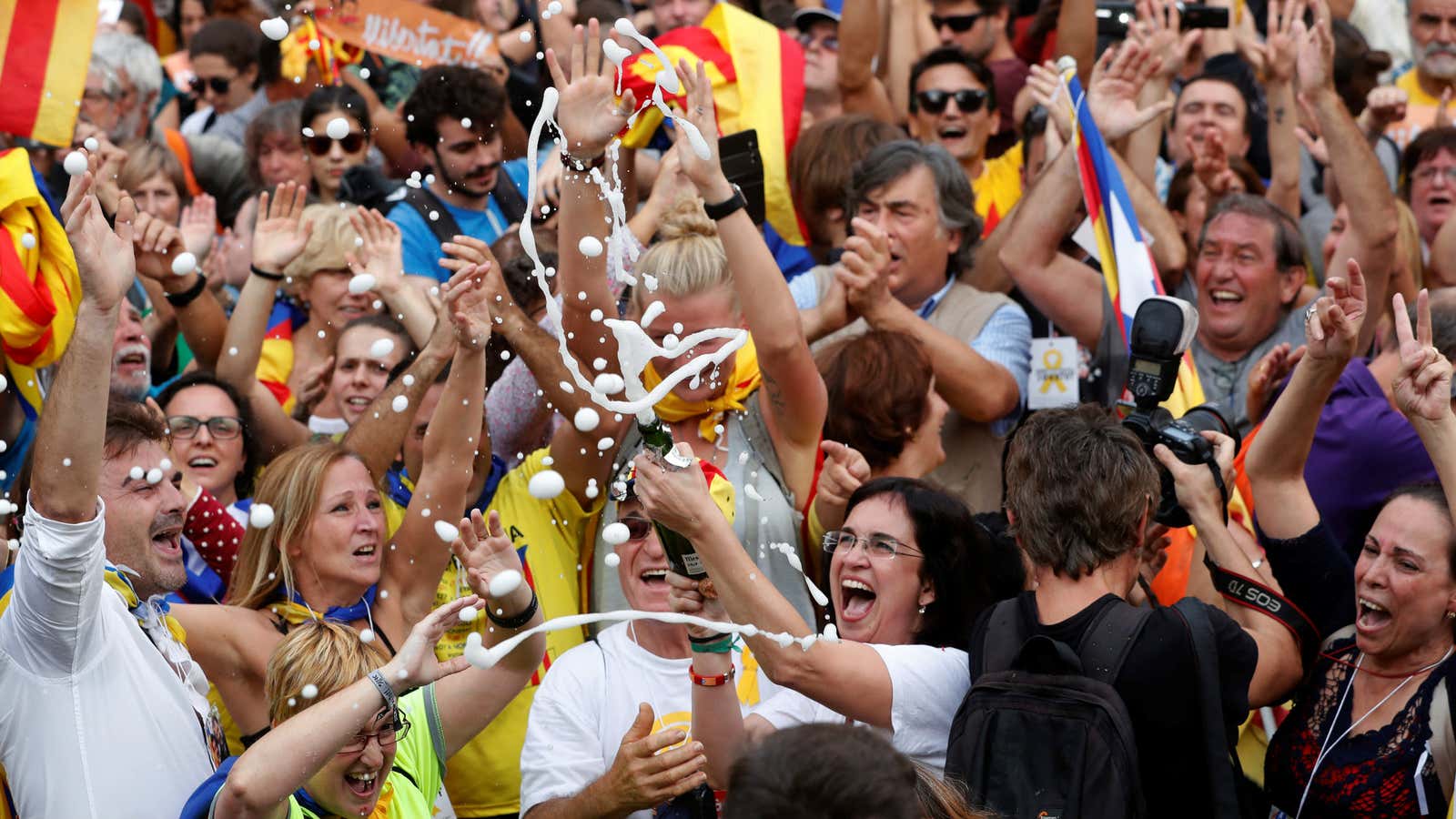Almost a month after Catalans voted for independence from the rest of Spain, in a referendum Madrid considered illegal, a new battle has begun. After the region’s leaders dithered about their true intentions, Catalonia’s regional parliament voted this afternoon to formally declare independence from Spain. As people cheered in the streets, Madrid’s response was swift. The Spanish Senate gave prime minister Mariano Rajoy the power to impose direct rule over the region. Under Article 155 of Spain’s constitution, Rajoy and the central government can take control over the region’s administration, remove its leaders, and call for new elections.
This latest chapter in the standoff comes after Catalan leader Carles Puigdemont refused to clarify to Madrid whether or not the region had already declared independence following the referendum. Instead, Puigdemont wanted to force Rajoy into talks about more autonomy (including, perhaps, full independence). Rajoy, insisting that Catalonia was acting outside of the law, persistently refused Puigdemont’s calls for “dialogue.”
“The Catalan Parliament has approved something that in the opinion of the great majority of people doesn’t just go against the law, but is a criminal act because it supposes declaring something that is not possible,” Rajoy said today.
There was a possibility that Puigdemont could have called early elections instead of declaring independence, which might have softened Spain’s response. The Catalan leader has been in intense talks with his party and other allies over the past few days, trying to decide on an outcome that would please all the disparate factions of the pro-independence movement. Ultimately, he put it to Catalonia’s 135 MPs to vote. The motion to declare independence was backed 70-10, with most of the opposition boycotting the vote, which paved the way for Spain to deploy the “nuclear option.” Article 155 has never been used before and it is unclear how it will be enforced in practice.
“The clash is here, and it won’t be pretty,” said Antonio Barroso, an analyst at Teneo Intelligence. “Tensions are likely to rise significantly over the coming days, especially as secessionist groups mobilize to stop the implementation of Article 155.”
